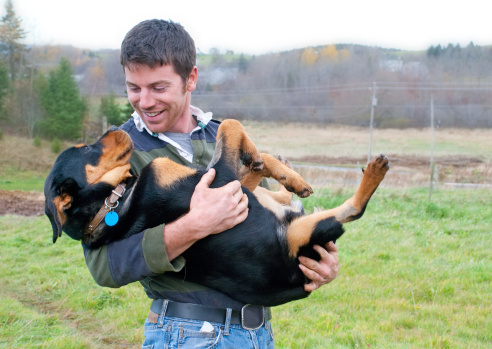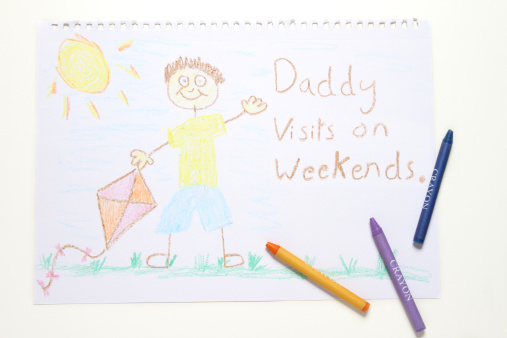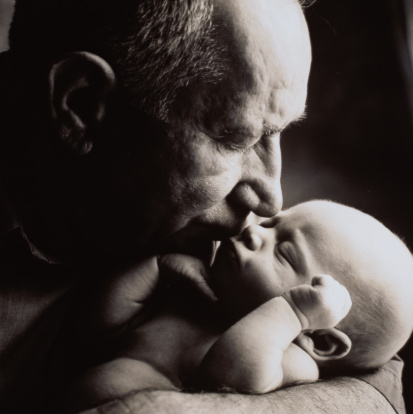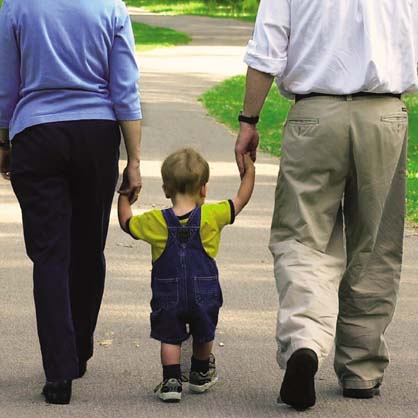 Recently I received a referral from Kristin, a client I represented in 2011 in her collaborative divorce. In thanking her for the referral, I took the opportunity to ask her how she was doing. With her permission, her response is reproduced below. At the time of her divorce, Kristin and her husband had two (2) children ages 10 and 12.
Recently I received a referral from Kristin, a client I represented in 2011 in her collaborative divorce. In thanking her for the referral, I took the opportunity to ask her how she was doing. With her permission, her response is reproduced below. At the time of her divorce, Kristin and her husband had two (2) children ages 10 and 12.
Hi Tonda,
Nice to hear from you. I will fill you in with some detail for examples of what can lay on the other side of divorce to help you give hope to your clients going through this painful process. Everyone is doing well here; the kids are doing really well splitting their time between our 2 households (4 miles apart).
Tom and I have a much better relationship now than when we were getting divorced. We talk several times per week and text, usually daily, mostly regarding kids’ stuff like coordinating activities/homework and just general parenting issues. We also try to meet for coffee sometimes to discuss things more in depth like holidays and vacation planning and kids’ milestones. We see each other at their basketball games, tennis matches, orchestra concerts, etc, even holidays sometimes, and usually sit together with our new spouses. Tom and I both got re-married a couple of months ago and Tom and his wife are expecting a baby in March. I married a pharmacist that I met after the divorce and we got married in Yosemite in August of this year. The four of us get along well and the kids get along well with both our spouses so I have nothing but great things to say about the collaborative process. It really helped us to avoid a lot of un-pleasantries and keep our family together without staying married, which is really great.
I hope all is well with you and your practice. I will continue to recommend people look into collaborative divorce as an option. It has been very helpful to us to use the divorce agreement as a structure, but we stay very flexible with rearranging schedules, holidays and vacations etc. We have actually never even had an argument since the divorce. It has helped us build a sense of cooperation and the
collaborative process really reinforced putting the kids as the center point for all decisions going forward. One of the things that always stuck in my mind through the whole process was that Tom and I decided that even though we did not have a successful and healthy marriage, we would have a successful and healthy divorce and be successful and healthy parents.
Best,
Kristin

Dogs have long been known for their ability to have healing effects on the sick, but did you know that adopting a dog while going through the divorce process can provide another wonderful form of therapy? Whether getting a new puppy or adopting a dog, there is value in adding a furry companion to your life. Man’s (or woman’s) best friend alleviates that empty feeling you may now be experiencing when you walk in the door at night.
Divorce often time leaves you feeling unwanted, just like many of those dogs at the shelter, which makes that canine even more relatable. Perhaps that dog came to the shelter from a divorced family herself. It has been proven that people benefit from interacting with canines. Simply petting a dog can decrease levels of stress hormones, regulate breathing, and lower blood pressure. Research also has shown that petting releases oxytocin, a hormone associated with bonding and affection, in both the dog and the human. Dogs respond to human emotions, and seem to know just when their companion needs a little extra loving.
A dog, or other animal, can also be helpful for children coping with a divorce. Research shows that a dog can be therapeutic for a child experiencing a divorce crisis. A pet teaches a lot about coping skills, at a time when their parents may not coping very well. Cuddling up to a dog or other critter can be calming, and teaching a dog a new trick can be rewarding.
If you are looking for a constant companion, who will help reduce your stress levels (and won’t talk back!), adding a new furry friend to your home may be a good divorce healing solution for you.

Divorce can be scary for kids. They may feel alone. They may feel responsible. They may feel sad. Parents may find it difficult to initiate conversations about the changes going on in the family. Very young children may be fearful and confused about having two homes instead of just one. Fortunately, there are a number of children’s books available that can help young ones open up about their feelings. Here is a list of books my clients have found helpful:
All of these books are available for purchase online. They may be available at your local library.

In the list of life’s most stressful events, divorce is near the top of the list. Divorce can cause health concerns, sleeplessness, job performance problems, distraction, and short tempers. It can damage relationships with others and, obviously, can be very hard on children. People going through divorce often exert great energy trying to keep things together, while also trying to make decisions with long-lasting implications.
It is important to find ways to lessen stress during divorce and keep calm. Here are four tips to managing stress during divorce:
- Find a professional team that makes you feel comfortable and you trust. A supportive team, starting with an attorney, will help you feel supported and more comfortable with the decisions you are making. Your attorney will be with you along the journey. Often your attorney will see you cry, get angry, and express fear. Other team members, like a financial neutral or child specialist, can also help you feel supported and help the process move forward in a positive manner. Your team should not cause you stress. Just the opposite – it should help you feel safe and lower anxiety.
- Focus on your own well-being. It is important to make sure you exercise self-care. Take care of yourself. Get sleep, exercise regularly, and reach out to friends for enjoyment and relaxation. The better you are personally, the better outcomes you will find in the divorce process.
- Be mindful of your future. Not knowing what the future holds can be stressful. Learn all that you can during this process about your future so you can alleviate this concern. Make sure you grasp the financial implications and parenting decisions being made. Ask lots of questions and keep your long-term goals in mind. The more you know, the more comfortable you will be moving forward.
- Consider a collaborative divorce. A litigation process – leaving decisions up to a third party – is inherently stressful. The adversarial nature of that process can add to the anxiety. On the other hand, negotiating outside of the courts and using a collaborative process can help you maintain control of the outcomes and help build a more positive co-parenting relationship. You can learn more about collaborative divorce here.

After the service was over, my friend, Larry, came up to me and said, “When I die, I want you to do my eulogy!”
“Then he’s going to have to spend a lot more time with you,” my wife chimed in. “He’ll have to learn a lot more about you.”
“Oh, God, no!” said Larry. “I don’t want THAT. I want him to lie his head off about what a great guy I was.”
For my father-in-law, one of the Greatest Generation’s Navy veterans, there were many amazing accomplishments to remind his friends and family of. There was his status in the family, and the endless help he provided. There was comedy and quirkiness. There was love.
It all begged the question, as I put the remembrance together, of what could be said of anyone? How do you sum up someone’s life? What did they like? What drove them crazy? I thought about some of the divorce clients I’ve had over a 34-year career, about the ones who just wanted to know “what my rights are.” About others who’d never missed a school play all the way through public school, and were terrified they might, if communications broke down. I wondered what eulogies their children might deliver. What would those epitaphs be?
“I just want to know what my rights are”?
“Daddy! You came!”?
“You were always there for me, Mom!”?
It’s said the Past can inform the Present. It might be a good thing if the Future could, as well.

For Minnesota families, summer feels different than other times of the year in more ways than just the warmer weather. Because most kids don’t attend school year round, the summer months can present unique scheduling challenges. This is especially true for families headed by two wage earners, and even more so when parents have gotten unmarried. For a school-age child, the summer routine often includes a mix of camps, classes and lessons, latchkey programs, vacations and sporting activities, with many logistical issues to be resolved. This is “times 3” if there are three kids in the family! The start and end times of kids’ activities vary week to week, and tend to not conveniently coincide with the work hours of the parent on duty.
That’s a lot of moving parts for families in which parents are
getting unmarried. Managing complicated logistics is especially stressful if kids move from Mom Island to Dad Island without a safe and reliable bridge between the two. This is one reason why
Collaborative Team Practice is designed to help parents establish the best possible co-parenting relationship after a divorce or break up. This always makes it easier on kids, but it can also be a huge benefit for time-challenged parents, and for the support network of extended family, baby sitters and carpool parents who can be resources for kids without having to be in the middle.
Here’s the rub: establishing an effective co-parenting relationship isn’t easy. An effective co-parenting relationship relies on clear communication, cooperation, reasonable flexibility and courtesy, and these elements can be in short supply during the painful end of a marriage or partnership. The Collaborative guidance and support of a
neutral child specialist to create a Parenting Plan and a neutral coach to create a Relationship Plan are important resources toward the goal of effective co-parenting. We know this hard work can be invaluable for your family in the future. You and your kids deserve to enjoy all the summers to come.

Sometimes Life’s lessons are subtle and elusive. Other times, they’re less so.
In mid-March, my granddaughter arrived “in the usual way”, big dark eyes and a head full of dark hair that had all the nurses exclaiming. My stepson was beside himself with joy and tenderness. My wife’s feelings radiated from her face like a beacon. That was Thursday night. On Monday, the new parents brought the baby to St. Johns Hospital to visit Grampa, who was failing, and in and out of awareness. Grampa was able to sit up and hold his great-granddaughter. “Sweet baby!” he murmured repeatedly, smiling down at her.
The next day, Grampa returned to his assisted living apartment under a hospice arrangement. The last weekend of March saw my wife and I camped at his bedside from Friday on. Relatives came and went, and as the significance of the moment registered, I expressed my feelings in poetry. Monday morning he slipped away. The funeral was three days later.
In each case, I was reminded of the majesty and grandeur of Life’s primal events; of how great is the illusion of human control over the most important matters of our lives. I wondered at the ability of a tiny baby to cement two young people together, and suddenly found myself thinking how insane is the notion that anything could ever separate her parents. Yet, as a divorce lawyer, I see it every day. And I was humbled once again recalling my clients who reconnected with the joy of their children’s births at the same time they were witnessing the death of their marriages; who saved what they could and grieved the loss of what they couldn’t. Occasionally, I hear from them, reporting that the Great Wheel of Life did, in fact, continue to turn; that sometimes the lessons they learned were not realized until months or even years later. It made them, they report, much more sensitive to the teachings of any given moment. It made them participants, rather than mere spectators, in their own lives. It made them think.
Recently I received a LinkedIn endorsement from Christa, a client I represented in 2008 in her collaborative divorce. In thanking her for her endorsement, I took the opportunity to ask her how she was doing. With her permission, her response is reproduced below. At the time of her divorce, Christa’s two (2) daughters were 16 and 17, and Christa only worked part-time.
Hello Tonda,
How nice to hear from you! Life has been good on my end. I’ve move forward professionally and personally–continued to work in psychiatric research, first part-time and then, for the past 4 years full-time. In addition, I’ve been building my private counseling practice, which led to 60+ work hours per week. The practice is going well enough that I was able to resign my salaried position effective this November. It’s not easy leaving a place that feels like a curious and lovable community, but for the sake of living a full life, choices needed to be made.
In October 2008, a mutual friend introduced me to a man who is now my husband. He was married before and has 2 children–his son is the same age as my oldest daughter (23), and his daughter is 15. We were married February last year (2013) on Key West. Almost my entire family came over to be there for us–including some nieces and nephews. It was lovely.
Two weeks later, my former husband got married as well to a woman he had been dating since our separation.
The girls are doing very well. My oldest daughter will be graduating this coming spring with a major in education and mathematics. My youngest daughter will graduate next December, and then plans to get her MA degree in child psychology. After struggling with grades and transitions the first year, they have both become straight-A students.
My youngest daughter said something interesting the other day while we were driving. She said, “Mom, I can’t even imagine you and dad being together anymore; it’s not like I don’t remember, but you guys are so different, and all my friends can’t even believe the two of you were ever married. I mean, how did you make it work for so long?”
Today, both my daughters see the benefit of their parents having divorced and moved on. My former husband seems happy, has a good relationship with his daughters and brought a great woman into his life. I’m happy as well, and likewise have a wonderful connection with my daughters. Both daughters are relieved they don’t have to worry about either one of us, and both of them like our choice of new partners.
Everyone is well and happy. I’m very grateful for the part you played in giving me the information and support I needed to take the step toward divorce that had frightened me so much. Not once did I regret this transition. I appreciate the divorce process was not hostile. You were calm, wise and nurturing when I was in the grips of anxiety. Sure, there were hurt feelings and it’s very stressful going through this process. However, it left two people free to move forward and build a meaningful life. It also freed our children from the worry they had for parents who just could not be happy together.
So: thank you, thank you, thank you!!!
All the best,
Christa
When Gwyneth Paltrow and Chris Martin
recently announced their breakup as “consciousuncoupling”, they created quite a buzz. Comments both positive and negative streamed forth into the media. While many applauded the honesty and civility of the couple’s joint post, others were more critical, wondering, for example, whether conscious uncoupling is simply “breaking up for vegans.”
As a family law attorney focused on helping families in transition, I was impressed by the couple’s joint statement. Acknowledging that they “are and always will be a family” and that they “are parents first and foremost” reveals an elevated level of consciousness. By making the public aware of a kinder, more generous approach to divorce, my hope is that this celebrity couple is raising the awareness of others considering divorce.
While I understand that conscious uncoupling can refer to a variety of processes, the core principles include acceptance of mutual responsibility for the past and discussion of shared goals for the future. Divorce presents an opportunity for each partner to gain insight into his or her own patterns of behavior and how those patterns impacted the relationship.
The
Collaborative divorce process encourages conscious uncoupling. A neutral coach can help couples honor their feelings of grief and anger and develop a relationship plan for the future. Creating an honorable ending to one relationship improves the outlook for future relationships. If the family has children, they, too, will benefit from their parents’ healing and improved communication.
When Gwyneth Paltrow and Chris Martin made the recent announcement that they were
 consciously uncoupling,
consciously uncoupling, they clearly touched a public nerve. There was immediate sniping from people who seem to prefer celebrity gossip leavened with spite and public histrionics. Critics derided the process Paltrow and Martin are choosing and questioned their motives, and more than one “expert” opined that divorce could not occur without acrimony and anger. I beg to differ.
How cynical has the public discourse become when people would criticize a process of divorce that mindfully strives to create emotional safety for children?
What’s to be gained by scoffing at the notion of creating an effective co-parenting relationship?
Why is there an automatic assumption that hurt and sadness–even betrayal–must trigger fury and contempt, and that divorce is of necessity an adversarial process?
As a Neutral Child Specialist, I respect the calm and dignified way Paltrow and Martin have begun this sad journey, which, because of their professions, will need to be done in the public eye. Understanding that language is powerful, I applaud the term conscious uncoupling, which, like getting unmarried, does not carry the emotional baggage of the word divorce. I was especially impressed when Paltrow and Martin referenced the wish to co-parent and to continue to be a family for the sake of their children
A divorce process that puts the needs of children at the center is much healthier, not only for children but also for their parents. It is true that effective co-parenting leads to a much higher quality of life for all family members. These goals are embodied in the work of the Collaborative Team Practice community. Collaborative Team Practice may not be chosen by those who don’t believe that parenting during and after a divorce requires mindfulness, a certain amount of self-sacrifice and hard work to keep children at the center and out of the middle. However, it is an excellent process for parents who want to reduce the impact of a painful change on their children’s future.
 Recently I received a referral from Kristin, a client I represented in 2011 in her collaborative divorce. In thanking her for the referral, I took the opportunity to ask her how she was doing. With her permission, her response is reproduced below. At the time of her divorce, Kristin and her husband had two (2) children ages 10 and 12.
Hi Tonda,
Nice to hear from you. I will fill you in with some detail for examples of what can lay on the other side of divorce to help you give hope to your clients going through this painful process. Everyone is doing well here; the kids are doing really well splitting their time between our 2 households (4 miles apart).
Tom and I have a much better relationship now than when we were getting divorced. We talk several times per week and text, usually daily, mostly regarding kids’ stuff like coordinating activities/homework and just general parenting issues. We also try to meet for coffee sometimes to discuss things more in depth like holidays and vacation planning and kids’ milestones. We see each other at their basketball games, tennis matches, orchestra concerts, etc, even holidays sometimes, and usually sit together with our new spouses. Tom and I both got re-married a couple of months ago and Tom and his wife are expecting a baby in March. I married a pharmacist that I met after the divorce and we got married in Yosemite in August of this year. The four of us get along well and the kids get along well with both our spouses so I have nothing but great things to say about the collaborative process. It really helped us to avoid a lot of un-pleasantries and keep our family together without staying married, which is really great.
I hope all is well with you and your practice. I will continue to recommend people look into collaborative divorce as an option. It has been very helpful to us to use the divorce agreement as a structure, but we stay very flexible with rearranging schedules, holidays and vacations etc. We have actually never even had an argument since the divorce. It has helped us build a sense of cooperation and the collaborative process really reinforced putting the kids as the center point for all decisions going forward. One of the things that always stuck in my mind through the whole process was that Tom and I decided that even though we did not have a successful and healthy marriage, we would have a successful and healthy divorce and be successful and healthy parents.
Best,
Kristin
Recently I received a referral from Kristin, a client I represented in 2011 in her collaborative divorce. In thanking her for the referral, I took the opportunity to ask her how she was doing. With her permission, her response is reproduced below. At the time of her divorce, Kristin and her husband had two (2) children ages 10 and 12.
Hi Tonda,
Nice to hear from you. I will fill you in with some detail for examples of what can lay on the other side of divorce to help you give hope to your clients going through this painful process. Everyone is doing well here; the kids are doing really well splitting their time between our 2 households (4 miles apart).
Tom and I have a much better relationship now than when we were getting divorced. We talk several times per week and text, usually daily, mostly regarding kids’ stuff like coordinating activities/homework and just general parenting issues. We also try to meet for coffee sometimes to discuss things more in depth like holidays and vacation planning and kids’ milestones. We see each other at their basketball games, tennis matches, orchestra concerts, etc, even holidays sometimes, and usually sit together with our new spouses. Tom and I both got re-married a couple of months ago and Tom and his wife are expecting a baby in March. I married a pharmacist that I met after the divorce and we got married in Yosemite in August of this year. The four of us get along well and the kids get along well with both our spouses so I have nothing but great things to say about the collaborative process. It really helped us to avoid a lot of un-pleasantries and keep our family together without staying married, which is really great.
I hope all is well with you and your practice. I will continue to recommend people look into collaborative divorce as an option. It has been very helpful to us to use the divorce agreement as a structure, but we stay very flexible with rearranging schedules, holidays and vacations etc. We have actually never even had an argument since the divorce. It has helped us build a sense of cooperation and the collaborative process really reinforced putting the kids as the center point for all decisions going forward. One of the things that always stuck in my mind through the whole process was that Tom and I decided that even though we did not have a successful and healthy marriage, we would have a successful and healthy divorce and be successful and healthy parents.
Best,
Kristin  Recently I received a referral from Kristin, a client I represented in 2011 in her collaborative divorce. In thanking her for the referral, I took the opportunity to ask her how she was doing. With her permission, her response is reproduced below. At the time of her divorce, Kristin and her husband had two (2) children ages 10 and 12.
Hi Tonda,
Nice to hear from you. I will fill you in with some detail for examples of what can lay on the other side of divorce to help you give hope to your clients going through this painful process. Everyone is doing well here; the kids are doing really well splitting their time between our 2 households (4 miles apart).
Tom and I have a much better relationship now than when we were getting divorced. We talk several times per week and text, usually daily, mostly regarding kids’ stuff like coordinating activities/homework and just general parenting issues. We also try to meet for coffee sometimes to discuss things more in depth like holidays and vacation planning and kids’ milestones. We see each other at their basketball games, tennis matches, orchestra concerts, etc, even holidays sometimes, and usually sit together with our new spouses. Tom and I both got re-married a couple of months ago and Tom and his wife are expecting a baby in March. I married a pharmacist that I met after the divorce and we got married in Yosemite in August of this year. The four of us get along well and the kids get along well with both our spouses so I have nothing but great things to say about the collaborative process. It really helped us to avoid a lot of un-pleasantries and keep our family together without staying married, which is really great.
I hope all is well with you and your practice. I will continue to recommend people look into collaborative divorce as an option. It has been very helpful to us to use the divorce agreement as a structure, but we stay very flexible with rearranging schedules, holidays and vacations etc. We have actually never even had an argument since the divorce. It has helped us build a sense of cooperation and the collaborative process really reinforced putting the kids as the center point for all decisions going forward. One of the things that always stuck in my mind through the whole process was that Tom and I decided that even though we did not have a successful and healthy marriage, we would have a successful and healthy divorce and be successful and healthy parents.
Best,
Kristin
Recently I received a referral from Kristin, a client I represented in 2011 in her collaborative divorce. In thanking her for the referral, I took the opportunity to ask her how she was doing. With her permission, her response is reproduced below. At the time of her divorce, Kristin and her husband had two (2) children ages 10 and 12.
Hi Tonda,
Nice to hear from you. I will fill you in with some detail for examples of what can lay on the other side of divorce to help you give hope to your clients going through this painful process. Everyone is doing well here; the kids are doing really well splitting their time between our 2 households (4 miles apart).
Tom and I have a much better relationship now than when we were getting divorced. We talk several times per week and text, usually daily, mostly regarding kids’ stuff like coordinating activities/homework and just general parenting issues. We also try to meet for coffee sometimes to discuss things more in depth like holidays and vacation planning and kids’ milestones. We see each other at their basketball games, tennis matches, orchestra concerts, etc, even holidays sometimes, and usually sit together with our new spouses. Tom and I both got re-married a couple of months ago and Tom and his wife are expecting a baby in March. I married a pharmacist that I met after the divorce and we got married in Yosemite in August of this year. The four of us get along well and the kids get along well with both our spouses so I have nothing but great things to say about the collaborative process. It really helped us to avoid a lot of un-pleasantries and keep our family together without staying married, which is really great.
I hope all is well with you and your practice. I will continue to recommend people look into collaborative divorce as an option. It has been very helpful to us to use the divorce agreement as a structure, but we stay very flexible with rearranging schedules, holidays and vacations etc. We have actually never even had an argument since the divorce. It has helped us build a sense of cooperation and the collaborative process really reinforced putting the kids as the center point for all decisions going forward. One of the things that always stuck in my mind through the whole process was that Tom and I decided that even though we did not have a successful and healthy marriage, we would have a successful and healthy divorce and be successful and healthy parents.
Best,
Kristin 







